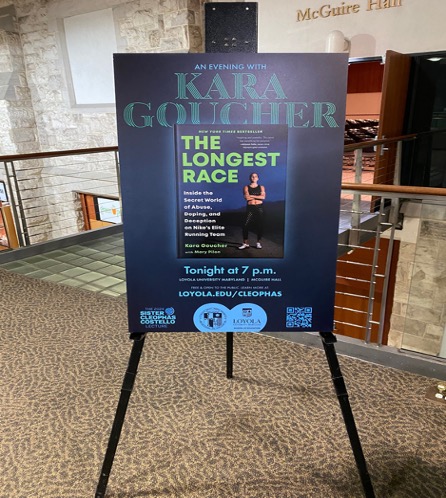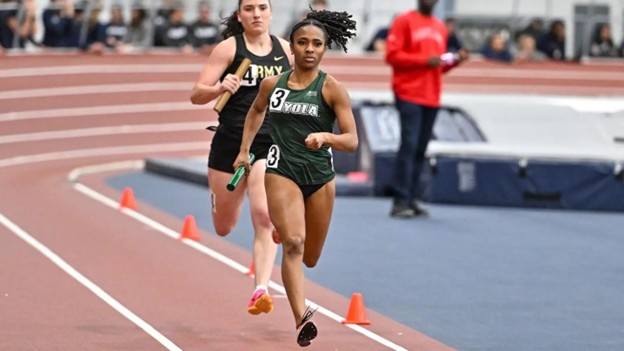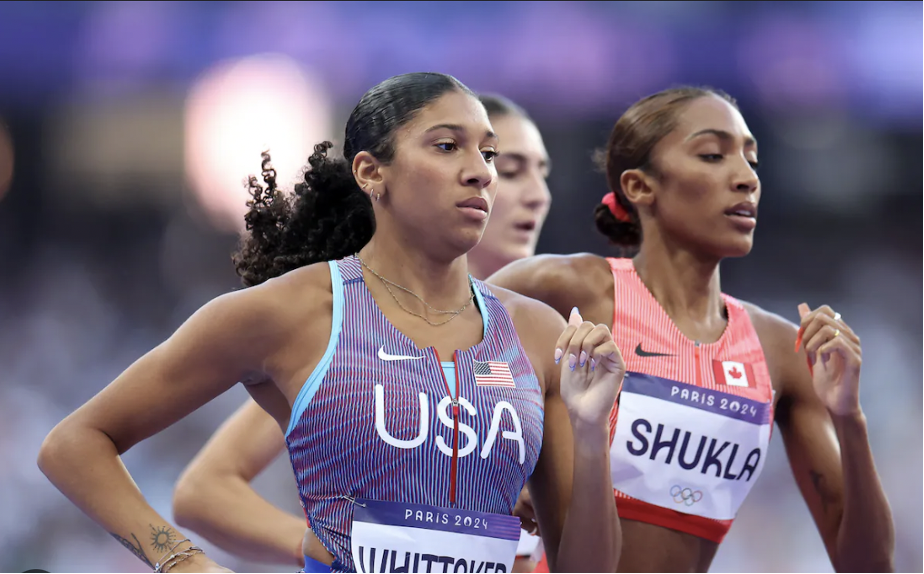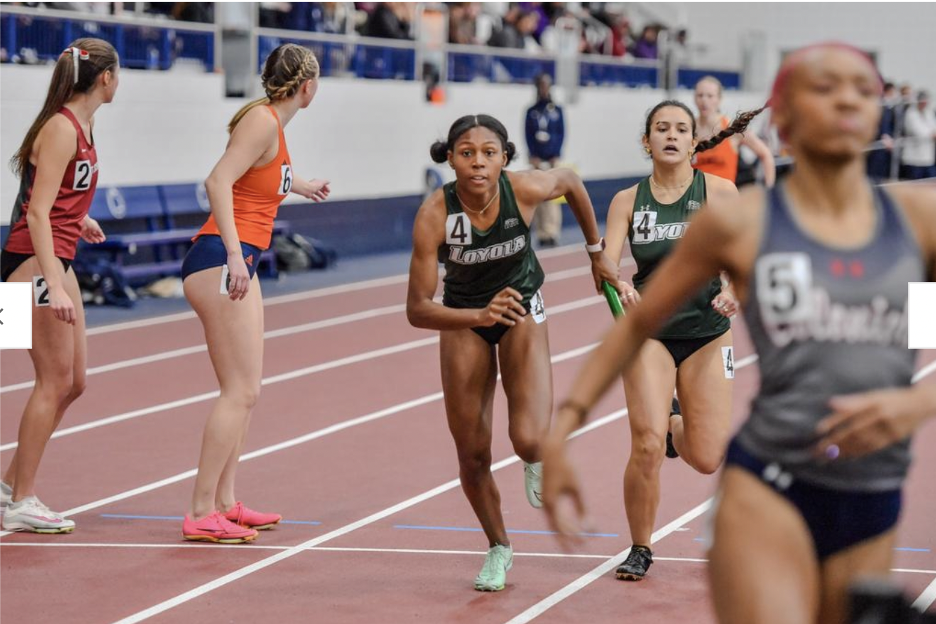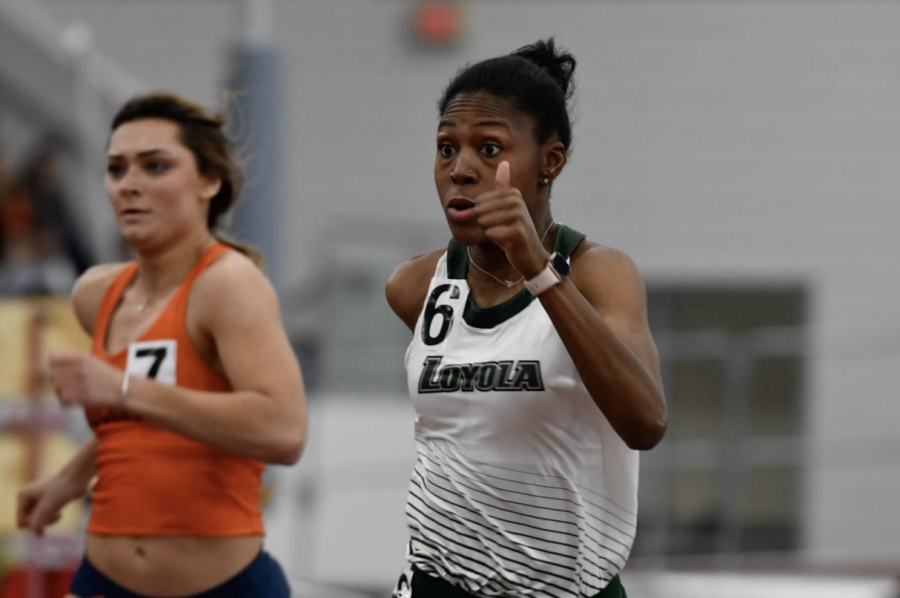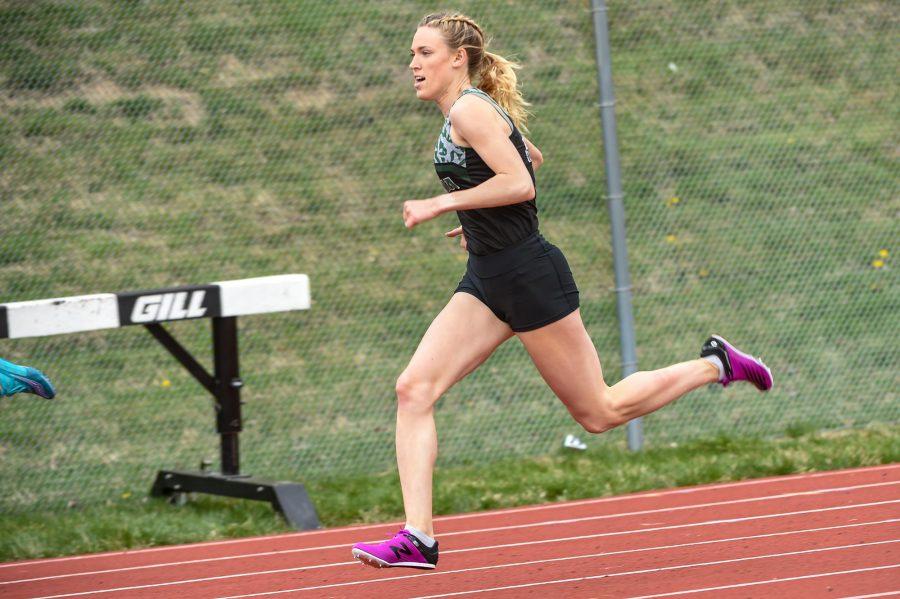At the annual Sister Cleophas Lecture, members of Loyola welcomed former professional runner and author Kara Goucher as the guest speaker for this year’s lecture, which took place on Nov. 20. According to Loyola, Sister Cleophas Lecture is a long-time-running Loyola tradition since the late 1970s to honor the late Sister Mary Cleophas Costello. The lecture series features prominent women who embody the ideals of scholarship, leadership, and artistic ability.
World Athletics reported that Kara Goucher is a two-time NCAA champion, one-time World Championships silver medalist, and competed for Team USA during the 2008 and 2012 Olympic Games. Additionally, she was a Nike Oregon Project member for seven years, where she trained under decorated runner Alberto Salazar. Goucher talked about her experience with the team and how she took on Salazar and Nike in her memoir “The Longest Race: Inside the Secret World of Abuse, Doping, and Deception on Nike’s Elite Running Team.” Goucher mentioned one of the many specific moments in her career was her treatment by Nike, while she was pregnant with her son.
“I was the most requested female athlete from Nike at the time. I was doing all sorts of interviews and on the cover of all sorts of magazines and I wasn’t getting paid behind the scenes,” Goucher said,“It was awful. These are people that I feel are family, so it feels extra icky but also shocking. Like, I just did the cover of this magazine that you (Nike) having me sign for people, you’re putting me in ads, and announcing my pregnancy. I just felt like you’re telling the world that we can do it all as women, and behind the scenes I’m actually being punished for trying to do it all.”
Goucher also shared her allegations of being sexually assaulted by Coach Salazar and said she attended therapy to cope with her experience. Her allegations led to U.S. Safe Sport banning Salazar from coaching for life. Through her therapy journey, she learned to not be ashamed of what happened and does not feel the need to hide from it anymore. Now, she feels the more she talks about it, the more people she can reach and let them know that they are not alone.
“After years of therapy, I realized that he’s the one with the problem and not me, and I’m not ashamed anymore,” Goucher said. “It took me a long time to get there, and still people tell me ‘Oh I don’t believe you’. It hurts, but that doesn’t keep me from sharing my story.”
Through her openness about the horrible experiences she has endured, she has become an advocate for female empowerment within the world of professional sports. She views female empowerment as women doing what they want without being compared to their male counterparts.
“A lot of sports are built around men’s experiences and so I see female empowerment in sports as being able to do all the things athletically that you want to do without losing yourself along the way,” Goucher said, “Women should be allowed to have their own experiences in sports and set their own records without being compared to their male athlete counterparts.”
Goucher wants to help create a world where women can do what they want without sacrificing who they are. She advises members of Loyola, specifically women to always hold on to your dreams.
“No one else owns that [your dreams] and no matter what you have been through don’t let anyone take your dreams and your passion from you,” she said. “If anyone says that you can’t do it, let that motivate you, even more, to prove that you can do it.”







































































































